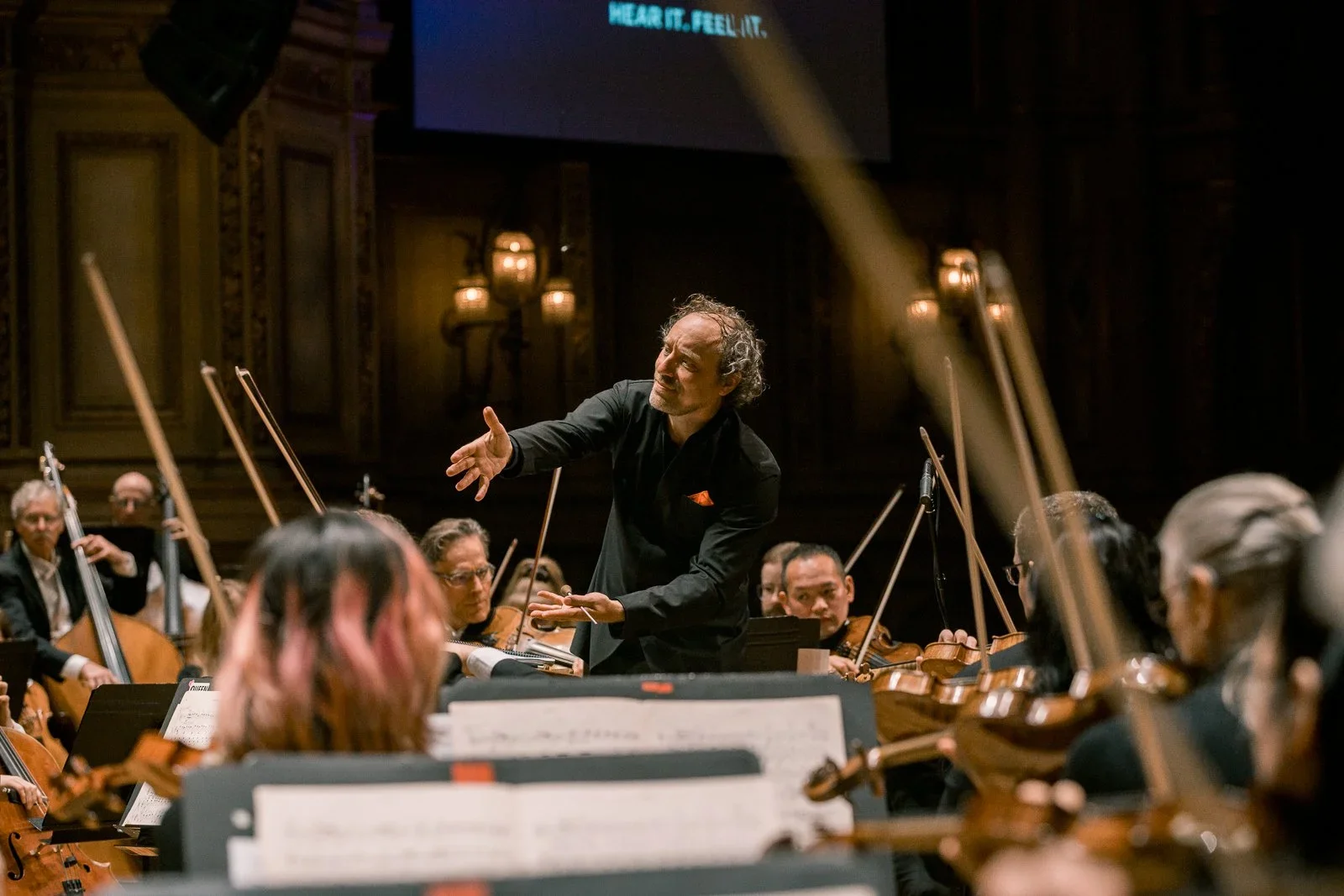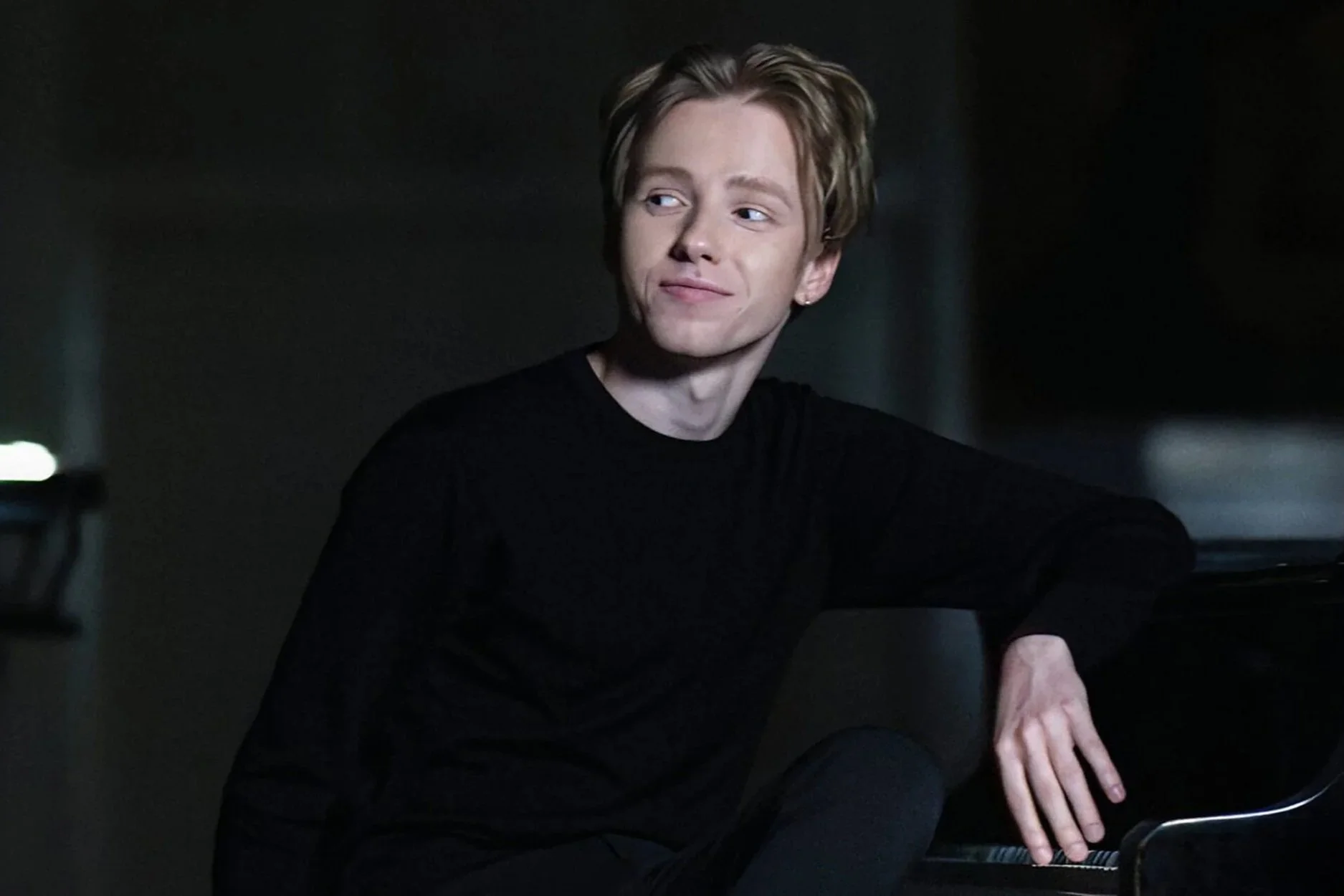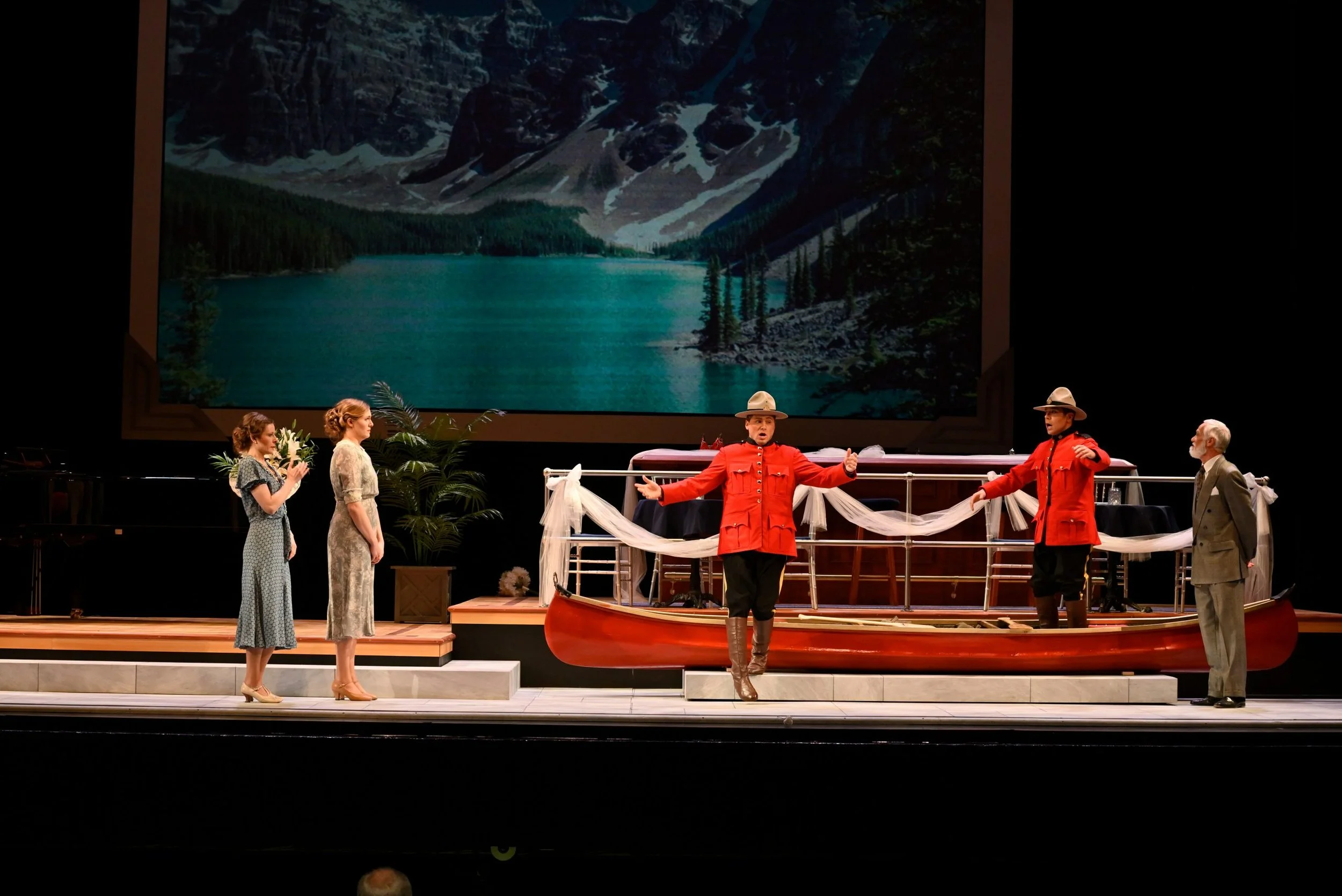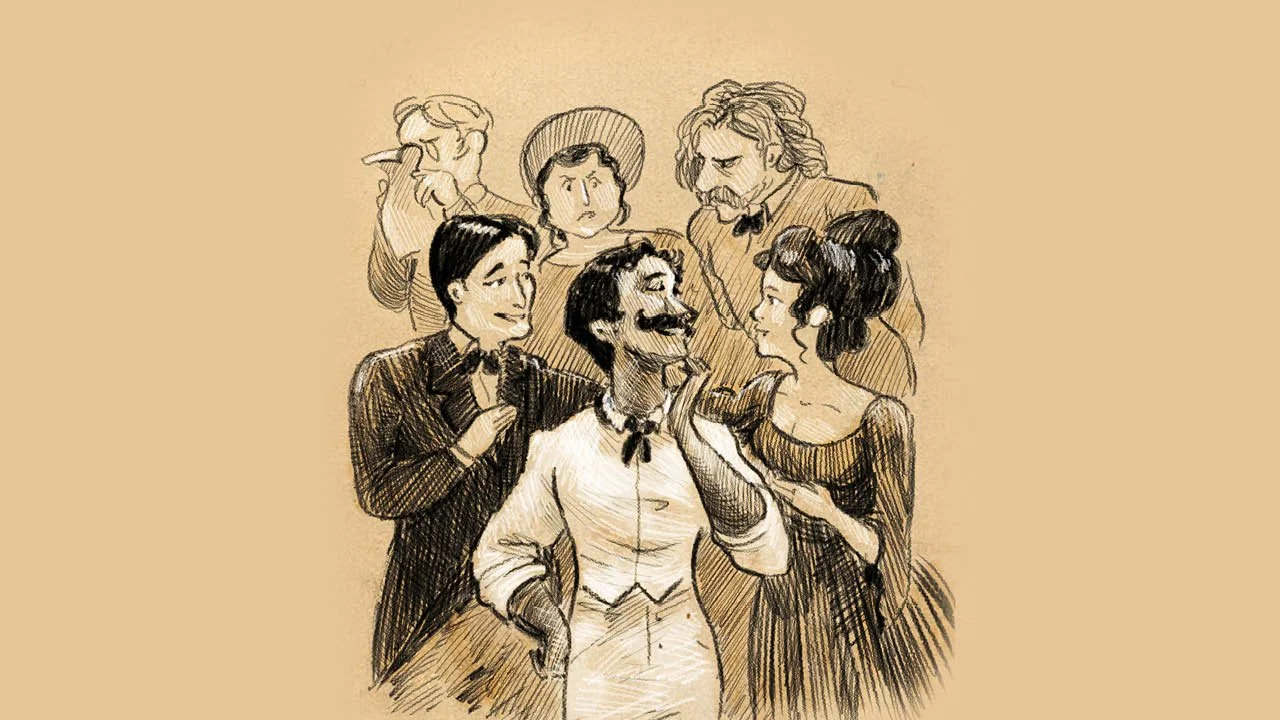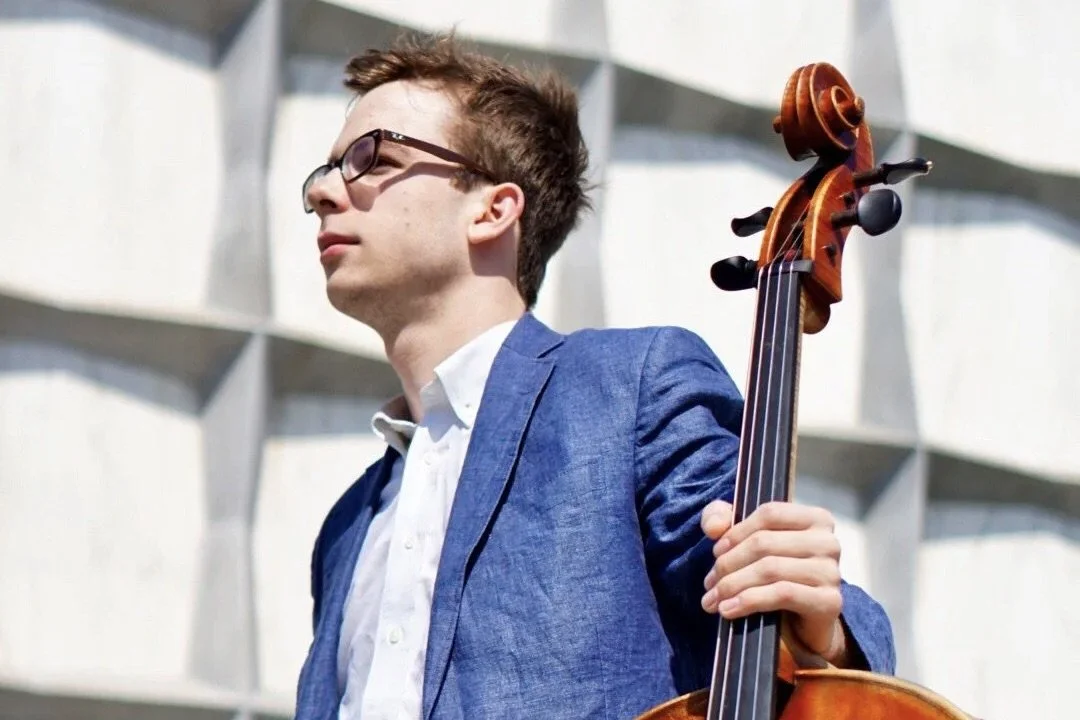Ukrainian concert pianist Vadym Kholodenko plays music to heal in his Vancouver debut
The acclaimed artist will reveal multiple layers in the music of Franz Schubert and Sergei Prokofiev
Vadym Kholodenko.
The Vancouver Chopin Society presents Vadym Kholodenko at the Vancouver Playhouse on November 8
The idea of a Ukrainian pianist (with a Russian wife) ending his recital with a major work by a Ukrainian composer (with a Russian father) suggests that the artist wants to make a big statement of some kind—either that Moscow’s war on Kyiv is a brutal miscalculation, or that the Russian and Ukrainian peoples have too much in common to be so divided.
In the case of Vadym Kholodenko’s Vancouver debut, however, that would be a mistake, if an understandable one. The 36-year-old musician says that he assembled his Vancouver Chopin Society program months before fighting broke out in February of this year, and that his primary concern was to create a coherent evening’s worth of music while illustrating the links between composers Franz Schubert and Sergei Prokofiev.
“How I put up programs, I just look for pieces that work together,” Kholodenko explains in a telephone interview from his home in Luxembourg, speaking in clear, heavily accented English. “That’s how I usually build a program. In connection with Schubert and Prokofiev, it was probably done more consciously, since I believe that very clear structure is something that is ingrained in both of them.”
Yet there’s no denying that the work Kholodenko will play last, Prokofiev’s Sonata No. 7 in B flat major, is perfectly unsettling music for perfectly unsettled times, whether those times be occasioned by the eerie quiet of a pandemic emergency or by the ominous whine of a kamikazi drone. The piece ends with an extraordinarily virtuosic exploration of piano overtones created by relentless hammering on the keys; it’s been nicknamed the “Stalingrad” sonata in honour of the Soviet city’s heroic battle against Nazi forces, but what some analysts have hailed as a triumphant finale could just as easily be heard as a depiction of events spiralling quickly out of control.
The future, it seems to suggest, remains unknown.
“This is really a very deep question, and you have to be aware of so many different interpretations of the music. Basically any music!” Kholodenko cautions. “With Prokofiev, there is this trio of sonatas—namely numbers 6, 7, and 8—which are called the ‘War Sonatas’. They were heavily inspired by the time Prokofiev lived in; he was going through a war, as my people are going through a war, as Ukraine is going through a war. So of course for me this a very particular work, a very particular cycle. And at the same time, sometimes in Prokofiev’s music a major key is sometimes worse or more ominous than minor-key music. So I would say that the finale is very flashy, but the whole sonata is quite gloomy and quite dark, until the very, very last movement.”
If not entirely unique in musicological lore, that last movement is certainly both of and ahead of its time. One could argue that its energetic violence prefigures future developments as diverse as American composer Conlon Nancarrow’s relentless scores for player piano and avant-jazz pianist Cecil Taylor’s densely layered clusters; as performed by some keyboardists, Yuja Wang chief among them, it can even take on overtones of heavy metal and hard rock.
But other influences are at play in both Prokofiev and Schubert. The latter’s Drei Klavierstücke, which Kholodenko will play before launching into the Sonata No. 7, hints at the composer’s happier side, echoing the Roma music Schubert would have heard in the Viennese taverns he liked to frequent, while Prokofiev’s music, even in the War Sonatas, draws on the antic rhythms of jazz and the melancholy beauty of Eastern European folk music.
“This is always a two-sided process, so it’s really difficult to say who was influenced by who,” Kholodenko suggests. “You’re probably right in saying that both Schubert and Prokofiev, they had a really strong attraction to folklore, to folk music. But of course there are so many layers which we can discover while we are working on this music. I truly believe that listening to any recital, listening to any kind of music, is actually also homework for any composer.”
Just as difficult to unpick, is the role that art can play in helping artists and audiences process and perhaps even overcome tragedy. Kholodenko’s life, even before the war in Ukraine, was marked by horror; in 2016, his estranged first wife killed their two children and then attempted suicide. In deference to the stress he’s currently experiencing—he’s managed to get his mother out of Ukraine, but is still receiving frequent reports about conditions in Kyiv from his uncle—we didn’t address this directly. But when the issue is obliquely raised, the pianist offers a clear and revealing analysis.
“This is, as you know, another sensitive topic for me,” Kholodenko explains. “But in any case what I know is that, for example, in the case of this war I needed to pose a question for myself: ‘Should I continue playing concerts? or ‘Does it really make sense to make any kind of concert appearances when there’s a war going on in Ukraine?’ And then the answer came quite naturally from people messaging me on Facebook or approaching me after concerts and saying that classical music—or music in general—is what gives them consolation, what gives them hope. So I would say that certainly art heals, and particularly during the pandemic it became quite evident that we really need live art—live concerts, live music from the stage. This summarizes my answer to you: music and art are very important for the audience—and for me.”




